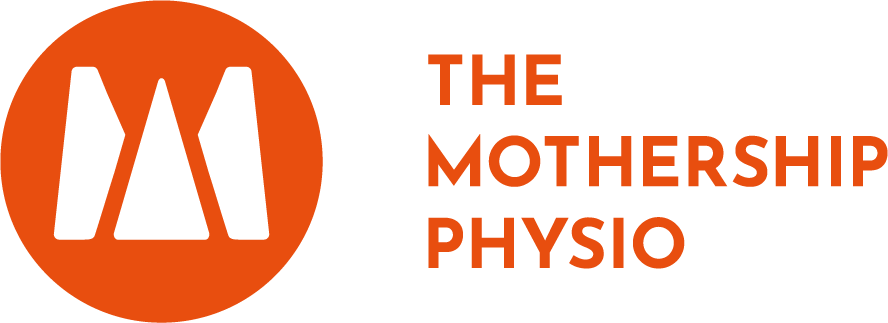Perimenopause - Emma’s journey (Copy)
When did perimenopause begin for you?
My perimenopause began at age 38 after the birth of my daughter 5 years ago.
Take home: perimenopause begins on average at 41 years of age and lasts 10 years. The strongest predictor is the age your mum went through menopause.
What has perimenopause been like for you?
At the start of my perimenopause my symptoms were really mild and it's only in hindsight that I now know it was the start of my perimenopause. At the time, I thought the brain fog I was experiencing was just part of the sleepless nights of becoming a new mum.
My lifestyle pieces were all lined up. I'd had a dreamy pregnancy where I was weight training throughout and enjoyed a vaginal birth with a straightforward postpartum. After 6 months, Millie was sleeping through the night. I had the physio knowledge of how to get myself back to fitness and was back lifting weights in the gym at 9 months, taking Claire's mum bub class so she could go off on mat leave and then felt ready to return to work in the NHS at a year postpartum.
I don't want to sugar coat this too much as even with the best knowledge and joy of a straightforward motherhood journey the first time around, motherhood is still hard!
At 18 postpartum I had my son prematurely. I had a high risk pregnancy with multiple complications. This led to an emergency c birth. I didn't feel like myself in postpartum, NICU was intense and the first year waiting to see if my son would get over his reflux and start to interact with the world was tough. It was high stress to say the least.
You might be asking “why Emma are you telling me about your birth experience” when yours was completely different? To demonstrate the point that trauma or any kind of chronic stress doesn’t just leave the body as soon as it stops. Take for example if you had 5 years of being in a stressful job, it might take you the same amount of time to get back to baseline and feel yourself again, or longer alongside the challenges of young kids and perimenopause. It’s important we set realistic expectations on ourselves so we know what to expect and how to manage this to get better. For me, my pregnancy and childbirth experience made my body much more sensitive to my hormones and my perimenopausal symptoms multiplied significantly.
Take home: motherhood is hard no matter what birth or postpartum you experienced. Add in any other health, family, life or work stressors, then this will sensitise your nervous system to make it more reactive to your hormonal changes in perimenopause. Get informed as early as possible about perimenopause, get your lifestyle pieces and things you can control in order as far as possible and find your support crew in friends and professionals you can trust.
What are your worst symptoms?
Headaches, fatigue, brain fog and premenstrual anxiety.
Take home: perimenopause symptoms reach far beyond vasomotor symptoms like hot flushes and night sweats. In fact, the most common symptoms affect our brains because that’s where oestrogen (oestradiol), progesterone and testosterone are produced as well as by our ovaries and other organs. These neurotransmitters (chemical messengers in the brain) work closely with others including serotonin (happy hormone), dopamine (chill hormone) and melatonin (sleep hormone). Try this Menopause symptom questionnaire to assess and monitor your symptoms.
Overall, what 3 things have helped you most on your perimenopause journey, so far?
Understanding perimenopause and how it relates to my body and lifestyle.
Viewing taking HRT as a 6-12 month trial to see it would relieve my symptoms enough to carry out my healthy lifestyle habits again.
Talking to Claire as a friend and physio.
Does having children later in life make perimenopause harder?
Definitely. Perimenopause symptoms are so hugely affected by your lifestyle. If you have children later in life and are faced with the challenges of having a baby or young children at the same time as going through perimenopause, this can make it much harder.
After my first child, I thought the brain fog I had in postpartum was just part of being a new mum. Turns out it wasn't
Claire had her first and fourth child 10 years apart, late 20s vs late 30s. It was only with her fourth baby that she experienced brain fog in postpartum likely due to the lower levels of oestrogen.
One happy knock on effect for her and other mums who have had 3 or more births since their late 20s or early 30s, is that they are likely to have a more straightforward perimenpaise and menopause as the body has got used to lower levels of oestrogen for so long.
Take home: becoming a mum later in life can make perimenopause harder. It also can be hard to identify what symptoms you're experiencing are a normal part of motherhood and what are as a result of perimenopause, and thus know what to do about it. Don't suffer in silence, seek support and ask questions at our clinic call to book in for a formal consultation with us or Georgina at Sirona.
Are you taking HRT and if so, what helped you decide that this is the right thing for you?
I started taking HRT at 42 years old. I got to the point where I had such severe symptoms I wasn't able to exercise, sleep well or work. I needed to see if HRT could relieve my symptoms enough to be able to carry out my lifestyle habits again. (*spoiler alert: Thankfully it did, but it's not a fix all).
I have never been one to need or want to take medication but I felt that HRT was different to most medication; it's bioidentical (same as what your body produces) and it's not synthetic. It is a powerful anti-inflammatory and there is well established evidence to support its efficacy in preventing heart disease, diabetes, osteoporosis as well as a growing body of research to say it is likely to be preventative of breast cancer if taken early enough.
I didn't know whether my symptoms were being caused by motherhood, long covid or perimenopause. A trial of taking HRT over 6-12 months would show at least what part perimenopause was playing.
Take home: taking steps to improve your lifestyle and changing the things you can control are essential to a healthy menopause, whereas taking HRT is optional and a personal choice. If HRT worked to relieve your symptoms enough to better fulfill your lifestyle habits, then this in turn will have positive knock on effects to your overall health. The top 2 (evidenced based) lifestyle strategies for a better menopause are eating primarily plant based foods and resistance training (in the context of your pelvic health).
How has taking HRT helped you?
After 3 weeks, I noticed a big change in my vaginal health. My pelvic floor tissues felt more plump and more lubricated. I no longer had significant wet discharge at my mid cycle surge of oestrogen because the HRT softened this peak. I felt much more myself, more sexual and more feminine.
It took another 6 months to find the right dose of oestrogen and progesterone and adding on testosterone to help alleviate some of my main symptoms of brain fog, fatigue and headaches.
Take home: there’s a vast array of perimenopause symptoms, some of which HRT can resolve, some of which HRT can alleviate, but overall it's not a quick fix or magic bullet. The word HRT is misleading as the hormones are not a replacement to what you have but a top up. The theory is they help soften the sharp rises and falls of your hormones as we go through perimenopause and in doing so can alleviate some of your symptoms.
Why did you have the mirena coil fitted?
For contraception.
To ease premenstrual anxiety and headaches.
To use as the progesterone part of my HRT.
Take home: the mirena coil is a good choice if you have completed your family, don't want the hassle of periods any more and you like the fact that it's just a low dose of progesterone to your uterus to stop the lining of your uterus from thickening if or when you start taking oestrogen. The procedure may cause a uterine cramp for a few seconds and is generally quick and simple to do and your coil stays in for 5 years.
Is there anything you know now that you wish you’d known at the start of your perimenopause journey?
Rest means rest. It isn't doing an easy 30 minute bike ride, it isn't hanging out the laundry and it isn't lying down on your bed thinking, organising and planning! It is stopping everything, doing breathwork and finding calm and stillness in your body and mind.
Lower my standards on the small stuff (e.g. stop racing around trying to keep everything tidy, do tasks mindfully and with breaks and leave a half job if there’s simply not enough time for it) to allow me to do a great job on the big stuff (e.g. being there for my kids, helping other mums as a physio)
15 -30 minutes of strength training or walking daily is good enough and importantly is the magical number for getting that indisputable health and anti-inflammatory boosting affect of exercise. Forget Emma of old who trained as a professional triathlete for a gazillion hours per week. I am in a different phase of life now; let’s stick to enjoying healthy movement and exercise alongside the rest of my life.

